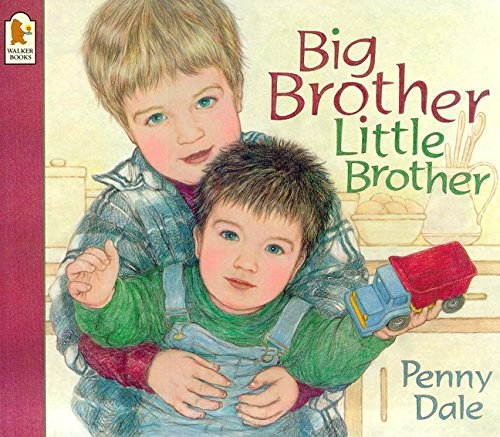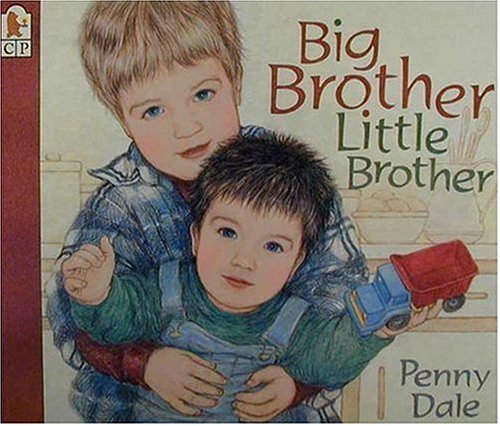-
Little Brother
Cory Doctorow
Hardcover (Turtleback Books, April 13, 2010)None
-
Little Brother
Cory Doctorow
Paperback (Voyager - GB, Aug. 16, 2008)The ultimate tale of teen rebellion -- one seventeen-year-old against the surveillance state. Big Brother is watching you. Who's watching back? Marcus is only seventeen years old, but he figures he already knows how the system works -- and how to work the system. Smart, fast and wise to the ways of the networked world, he has no trouble outwitting his high school's intrusive but clumsy surveillance systems. But his whole world changes when he and his friends find themselves caught in the aftermath of a major terrorist attack on San Francisco. In the wrong place at the wrong time, Marcus and his crew are apprehended by the Department of Homeland Security and whisked away to a secret prison, where they're mercilessly interrogated for days. When the DHS finally releases them, Marcus discovers that his city has become a police state, where every citizen is treated like a potential terrorist. He knows no one will believe his story, which leaves him only one option: to take down the DHS himself. Z+
Z+
-
Little Brother
Allan Baillie
Hardcover (Viking Juvenile, March 1, 1992)In Cambodia after the Vietnamese War, Vithy learns to overcome social upheaval, a hostile jungle, and his own inability to trust, in order to rescue his older brother X
X
-
Little Brother and Little Sister
Barbara Cooney
Hardcover (Barnes and Noble, March 15, 1999)Approx size: 7.2 x 10" with 48 colorful, magical pages of castles, enchanted forest, a prince, a fawn and a brother and sister.
-
Big Brother, Little Brother
Marci Curtis
Hardcover (Dial, May 24, 2004)Bright photos enhance this charming tale of sibling love as two brothers go about their day together playing games, wrestling, sharing a laugh, and more. By the author of Big Sister, Little Sister. J
J
-
Mike's Little Brother
P. G. Wodehouse
language (Library of Alexandria, Dec. 27, 2012)These things happened in New York, which is the capital of the Land of Unexpectedness; which, like Shakespeare’s divinity, shapes our ends, rough-hew them how we will. The fool of the family, sent there in despair to add one more to his list of failures, returns home at the end of three years a confirmed victim to elephantitis of the income. His brOther with the bulging forehead and the college education falls, protesting, into the eighteen dollars a week class. Anything may happen in New York. Michael Burke and his brOther Tim had journeyed from Skibbereen to the land where the dollar bills grow on trees, without any definite idea what they were going to do when they arrived there; and New York had handled such promising material in its best manner. Michael it had given to the ranks of the police. Tim it had spirited away. Utterly and absolutely he had vanished. Michael had left Ellis Island while Tim was still there. “And divil a sign,” said he, swinging his club sadly, “have I seen of me little brOther from that day on.” We were patrolling Merlin Street, on the East Side, together, one night when he first told me the story. I was the smallest of all possible reporters on The Manhattan Daily Chronicle at the time, and my most important duty was to cover the Windle Market police-station, which is within a stone’s throw of Merlin Street. It was there that I had met Michael; and when matters were quiet at the station, I would accompany him on his beat, and we would talk of many things, but principally of his little brOther Tim. As the days went on, I must have heard the story fifty times. In the telling it sometimes varied, according to Michael’s mood. Sometimes it would be long and unrestrainedly pathetic. At Other times it would have all the brevity of an official report. But it always ended in the same way. “And divil a sign,” Mike would say, “have I seen of me little brOther from that time on.” My imagination got to work on the thing. I liked Michael, and the contrast between his words and his granite, expressionless face appealed to me. It was not long before I began to build up in my mind’s eye a picture of the vanished Tim. Each night some remark of Mike’s would add anOther touch to the portrait. Why I got the idea that Tim was delicate I do not know. I suppose it came from Mike’s insistence on the epithet “little.” At any rate, Tim to me was a slightly-built boy, curly-haired, blue-eyed and pale. Not unlike little Lord Fauntleroy, grown up. Sometimes he had a cough
-
Big Brother, Little Brother
Penny Dale
Paperback (Gardners Books, June 30, 1999)When Little Brother cries, Big Brother knows why. But the course of brotherly love doesn't always run smooth. Little Brother takes Big Brother's truck, making him cry. What will Little Brother do? Seeing his Big Brother's so upset he gives the truck back, because they're brothers.
-
Big Brother, Little Brother
Penny Dale
Paperback (Candlewick, April 1, 2000)When Little Brother and Big Brother are upset, they both know why--because they're brothers! K
K
-
Little Brother 1st
Cory Doctorow
PaperbackNone
-
Little Brother
Cory Doctorow
Hardcover (Tor Teen, April 29, 2008)Marcus, a.k.a “w1n5t0n,” is only seventeen years old, but he figures he already knows how the system works–and how to work the system. Smart, fast, and wise to the ways of the networked world, he has no trouble outwitting his high school’s intrusive but clumsy surveillance systems.But his whole world changes when he and his friends find themselves caught in the aftermath of a major terrorist attack on San Francisco. In the wrong place at the wrong time, Marcus and his crew are apprehended by the Department of Homeland Security and whisked away to a secret prison where they’re mercilessly interrogated for days.When the DHS finally releases them, Marcus discovers that his city has become a police state where every citizen is treated like a potential terrorist. He knows that no one will believe his story, which leaves him only one option: to take down the DHS himself. Z+
Z+
-
Little Brother for Sale
Rahma Rodaah
Perfect Paperback (Rahma Rodaah, July 17, 2018)Little Brother for Sale tells the charming story of what happens when a big sister, Asma, becomes fed up with her little brother Hamza's annoying little ways, so she decides enough is enough and puts her little brother up for sale. Hamza steals his sister's food, pulls her hair and always takes their parents' attention away from her, especially when Asma's doing something amazingly brilliant. Asma attempts to sell her little brother to numerous different people but does she succeed? You'll have to read Little Brother for Sale to see if she triumphs and actually does sell Hamza, or does she see the error of her ways and change her mind?
-
Little Big Brother
Arsenio Franklin
language (, May 13, 2019)Charlie is like most high school freshmen: prone to embarrassing moments and little experience with the opposite sex (okay, none). Thank God his older brother can guide him through it all. Well, sometimes. The dead can’t visit on a whim.DeAndre’s visits are the only things keeping Charlie afloat as he navigates his teenage years. But this blessing is also a curse, straining Charlie’s friendships and threatening to derail his wishful romance with Samantha. Before Charlie can move on he needs to know if he’s really communicating with his dead brother or if it’s all in his mind as his mother and therapists believe.The clock is ticking. DeAndre tells him he won’t be around forever and the grief is tearing at the seams of Charlie’s relationships. An encounter between DeAndre and Samantha may provide the answer, and how Charlie deals with it will be the difference between keeping those he loves and losing them forever.